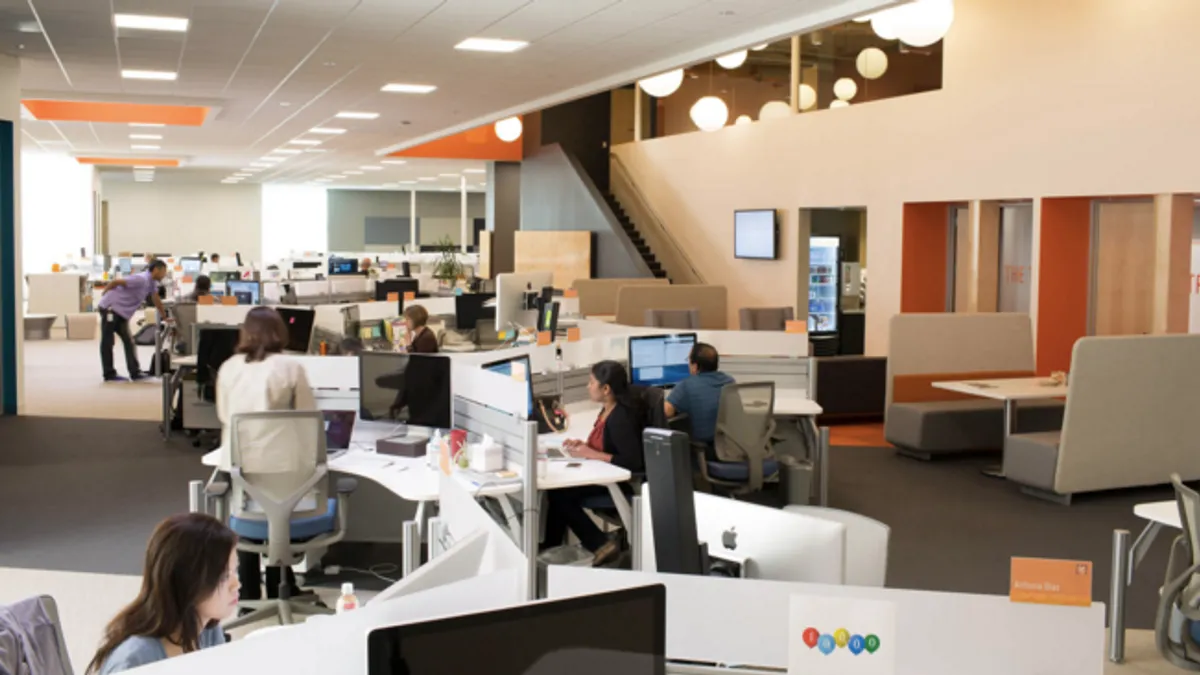Dive Brief:
- Eighty-three percent of employers responding to a recent McKinsey survey said their organizations will hire more people for health and safety roles as offices reopen. This included roles in "on-site distancing/sanitizing" and "workforce safety and health," according to the results, released Sept. 23.
- The pandemic has hastened employer investments in technology and digital learning, with 67% percent of respondents reporting accelerated adoption of artificial intelligence in their organizations; 85% said they have accelerated adoption of digitization for "employee interaction and collaboration."
- McKinsey also concluded that "[s]ome remote work is here to stay, but not for everyone or for every work day," pointing out that "more than 60% of U.S. workers cannot work remotely." Fifteen percent of survey respondents said that at least 10% of their workforces will be able to work remotely for at least two days a week, an increase from the 8% who said the same before the pandemic, the consulting firm said.
Dive Insight:
The McKinsey report lines up with the findings of a recent study from the Federal Reserve Bank of Philadelphia, which found that employers have increased automation in part due to the dire circumstances of the pandemic. Employers and researchers have expressed high hopes for the potential of artificial intelligence, with a February study from The Everest Group highlighting that A.I. could be more widespread without significantly impacting employee headcount.
Employers have been planning their return to offices once they were allowed to reopen earlier this year as states began lifting restrictions. In May, 82% of organizations had a return-to-work plan in place or were working on one, according to a survey by law firm Blank Rome.
Remote work remains a popular solution for the future, with a recent Gartner survey finding that over 80% of leaders plan to permit remote work at least part of the time after the pandemic. While some companies, such as Indeed, Google and Facebook, have said they will not require employees to return to the office until 2021, employers and employees have shown some interest in going back to work.
JP Morgan, however, had its trading and sales employees to return earlier in September, only to have to send employees home after a worker at the bank tested positive for COVID-19.
In addition to hiring to manage on-site health and safety, research has shown that training around these topics for all employees will also play a role in successfully reopening, and the National Safety Council has also urged employers to prioritize mental health during this time as well.













